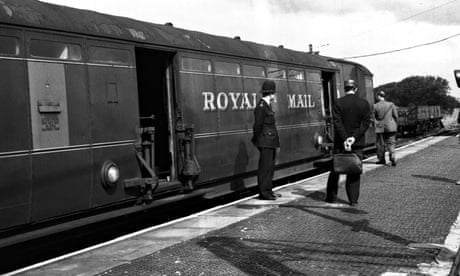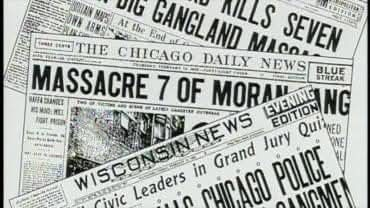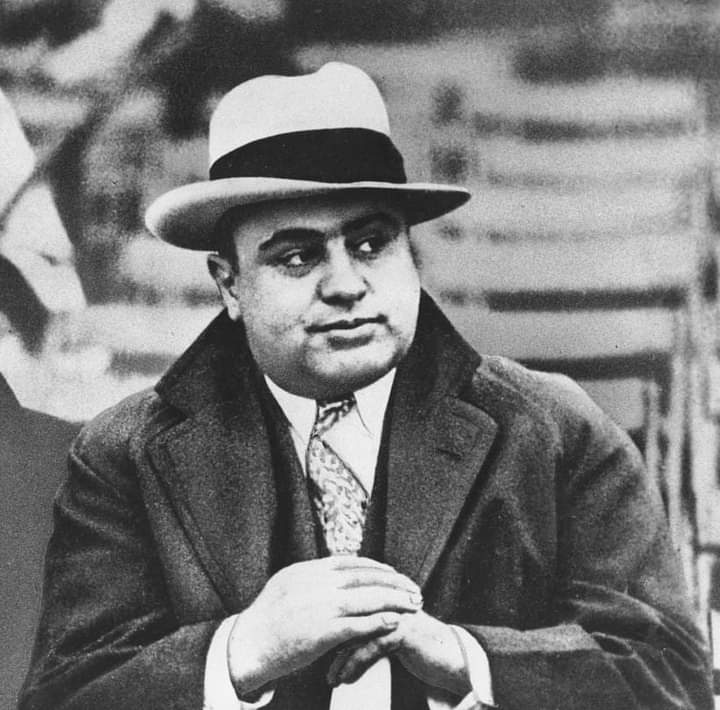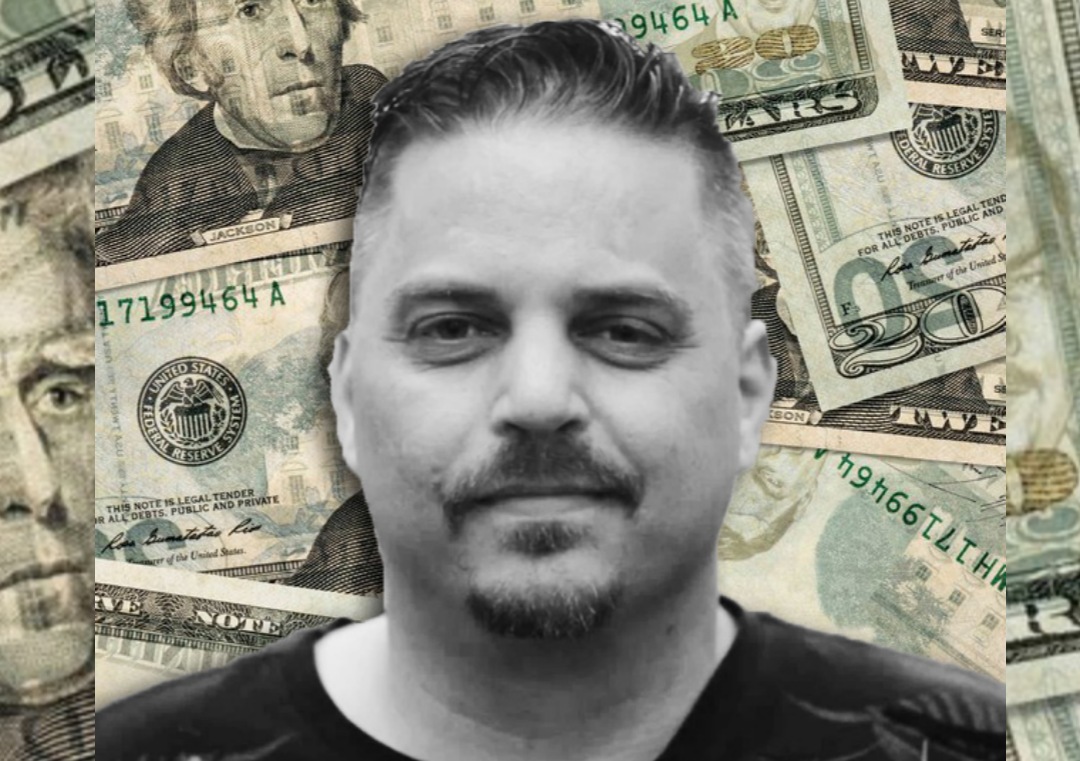CRIME: The Great Train Robbery of 1963

Did you know that the bulk of the stolen £2.61 million in the Great Train Robbery has never been recovered, and that all but one of the robbers real identity has also never been established?
The Great Train Robbery was the robbery of £2.61 million (valued as of 2023 to be £58 million) from a Royal Mail train heading from Glasgow to London on the West Coast Main Line. The robbery occurred in the early hours of 8 August 1963 at Bridego Railway Bridge, Ledburn, near Mentmore in Buckinghamshire, England by a gang which consisted of 17 full members who were to receive an equal share, including the men who were at the robbery and two key informants.
The gang members that carried out the robbery consisted of 15 criminals predominantly from south London. They are: Gordon Goody, Charlie Wilson, Buster Edwards, Bruce Reynolds, Roy James, John Daly, Roger Cordrey, Jimmy White, Bob Welch, Tommy Wisbey, Jim Hussey, and Ronnie Biggs, as well as Harry Smith and Danny Pembroke (the duo were among three men known only as numbers "1", "2" and "3") who were never charged due to the lack of evidence against them, and one still unknown, plus the train driver they nicknamed "Pop". The best-known member of the gang, Biggs, had only a minor role—to recruit the train driver.
Gang members numbering 15, led by Reynolds, after tampering with the lineside signals to bring the train to a halt, attacked the train. With careful planning based on inside information from an individual known as "The Ulsterman", whose real identity has never been established, the robbers escaped with over £2.61 million.
In the course of the robbery, the gang did not use any firearms, though Jack Mills, the train driver, was beaten over the head with a metal bar and suffered serious head injuries. After his partial recovery, Mills returned to work doing light duties. He retired in 1967 and died in 1970 due to an unrelated illness. Mills never overcame the trauma of the robbery.
After the robbery, the gang hid in a hideout, Leatherslade Farm. The police found this hideout, and incriminating evidence, a monopoly board with fingerprints, which led to the eventual arrest and conviction of most of the gang members. The ringleaders were sentenced to 30 years in prison.
On 12 August 1964, Wilson escaped from Winson Green Prison in Birmingham in under three minutes, the escape being considered unprecedented in that a three-man team had broken into the prison to extricate him. His escape team was never caught and the leader, nicknamed "Frenchy", had disappeared from the London criminal scene by the late 1960s. Two weeks after his escape Wilson was in Paris for plastic surgery. By November 1965, Wilson was in Mexico City visiting old friends Bruce Reynolds and Buster Edwards. Wilson's escape was yet another dramatic twist in the train robbery saga.
Eleven months after Wilson's escape, in July 1965, Biggs escaped from Wandsworth Prison, 15 months into his sentence. A furniture van was parked alongside the prison walls and a ladder was dropped over the 30-foot-high wall into the prison during outside exercise time, allowing four prisoners to escape, including Biggs. The escape was planned by recently released prisoner Paul Seaborne, with the assistance of two other ex-convicts, Ronnie Leslie and Ronnie Black, with support from Biggs's wife, Charmian.
Seaborne was later caught and sentenced to four-and-a-half years; Ronnie Leslie received three years for being the getaway driver. The two other prisoners who took advantage of the Biggs escape were captured after three months. Biggs and Flower paid a significant sum of money to be smuggled to Paris for plastic surgery. Biggs said he had to escape because of the length of the sentence and what he alleged to be the severity of the prison conditions.
Although within six months of the robbery, 10 of the robbers had been locked up awaiting trial and three others were wanted criminals on the run, very little of the money had actually been recovered. This has led to speculation that there is a great deal of robbery loot still out there. In fact, the money was soon seized and spent by predatory gangsters and greedy associates, relatives and lawyers. Thus the proceeds of the greatest cash robbery in British history were quickly used up, with few of the robbers receiving any real long-term benefit.
Less than £400,000 was eventually recovered. Over half of this consisted of the shares of Roger Cordrey (£141,017) and (allegedly) Brian Field (£100,900). A further £36,000 was recovered from Jimmy White's caravan. Roy James was carrying £12,041 when captured. The final sum recovered was £47,245 that was found in a telephone box in Great Dover Street, Newington, South London. The robbers who spent much time on the run overseas—Reynolds, Wilson and Edwards—had very little left when finally arrested, having had to spend money avoiding capture and indulging in lavish lifestyles without finding employment. Much of Jimmy White's money was taken from him.
According to Marilyn Wisbey, her father's share was hidden by his father Tommy Wisbey Snr in the panels in the doors of his home. Butler raided them three times but he never found the train money. The majority of the money was reputedly entrusted to Wisbey's father and also to his younger brother Ron, who coincidentally had saved some money of his own that was confiscated by the police and returned to Ron three months later. By the time Wisbey was released from jail all of his share had either been spent or invested. Although the Wisbey share was one that was not taken by other criminals, Marilyn is still bitter that her relatives got to spend a fair amount of the loot while the overall sum dwindled away. However, her grandfather used some of the money to buy them a house in Upper Norwood.
Up to six of the robbers escaped punishment in one way or another - "The Ulsterman", three robbers who were never caught, John Daly who had his charges dismissed at the trial and Ronnie Biggs who escaped from jail and managed to avoid being taken back to the UK. Daly had entrusted his money to another crook. This man had betrayed him to the police and had absconded with the money. He died before Daly could catch up with him.
Upon the release of the others in the mid-1970s, "Bill Jennings" got in touch with Buster Edwards and "Frank Monroe" got in touch with the South Coast Raiders. Both said that they had no money left. Danny Pembroke went initially to America and John Daly at the time was said to be living on unemployment benefits in the west of England. Ronnie Biggs quickly spent his share getting a new life. He loved his new life in Australia, although by the time his family arrived in 1966, all but £7,000 had been spent. £55,000 had been paid as a package deal to get him out of the UK. The rest had gone on legal fees and expenses.
In later years, the robbers generally came together only for the funerals of their fellow gang members. Wilson's funeral on 10 May 1990 was attended by Bruce Reynolds, who reported seeing Edwards, Roy James (who got into a verbal argument with the press), Welch (hobbling on crutches) and White (who went unnoticed due to his ability to blend into the background). At Edwards' funeral in 1994, Reynolds saw only Welch. (Hussey, Wisbey and James were in prison.) Following the deaths of Goody on 29 January 2016, and Tommy Wisbey on 30 December 2016, Bob Welch was the last known member of the gang known alive prior to his death on 2 November 2023.
#penglobalcrime
_1754475682.webp)


